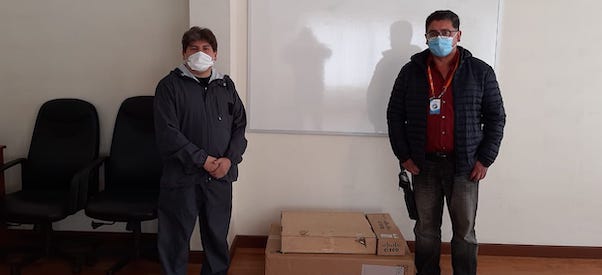Fostering Sustainable Peering Infrastructure
Building a solid Internet foundation takes time, effort, and trust.
If you needed to get a letter to your neighbor, you wouldn’t send it via airmail across the country and back first, would you? For much of the world, this is how Internet traffic is routed. This is why we need Internet exchange points (IXPs) and a sustainable peering infrastructure.
Peering happens when networks agree to exchange traffic with each other through IXPs. Networks can keep traffic local, provide faster connections, and improve the experience of the people relying on them. Because they no longer need to route traffic via expensive international links, connectivity costs drop, too. They also improve overall network performance and resiliency.

Growing the Internet
We build Internet infrastructure and grow the Internet by:
- Working with our partners to develop new IXPs
- Helping existing IXPs mature and advance by providing technical, developmental, policy, and/or regulatory support
- Partnering with regional IXP associations
- Continuing to support peering events across the globe to showcase best practices
- Advancing the 50/50 Vision
Get Involved




Latest News
The Decade That Changed The Democratic Republic of Congo’s Internet
Advancing Digital Africa: Empowering Internet Exchange Points (IXPs) in Benin, Malawi, and Rwanda
How Internet Exchange Points are Expanding and Improving Internet Access in Morocco
African Peering—Key to Keeping Traffic Local
An Internet Exchange Point Helps Haiti during Natural Disasters
Resources
Image copyrights:
© Klaus Tezokeng Chiha, © Carlos Sanabria, © Edgar Alvarado, © Randy Berghout, © Nyani Quarmyne / Panos Pictures, © Nyani Quarmyne / Panos Pictures